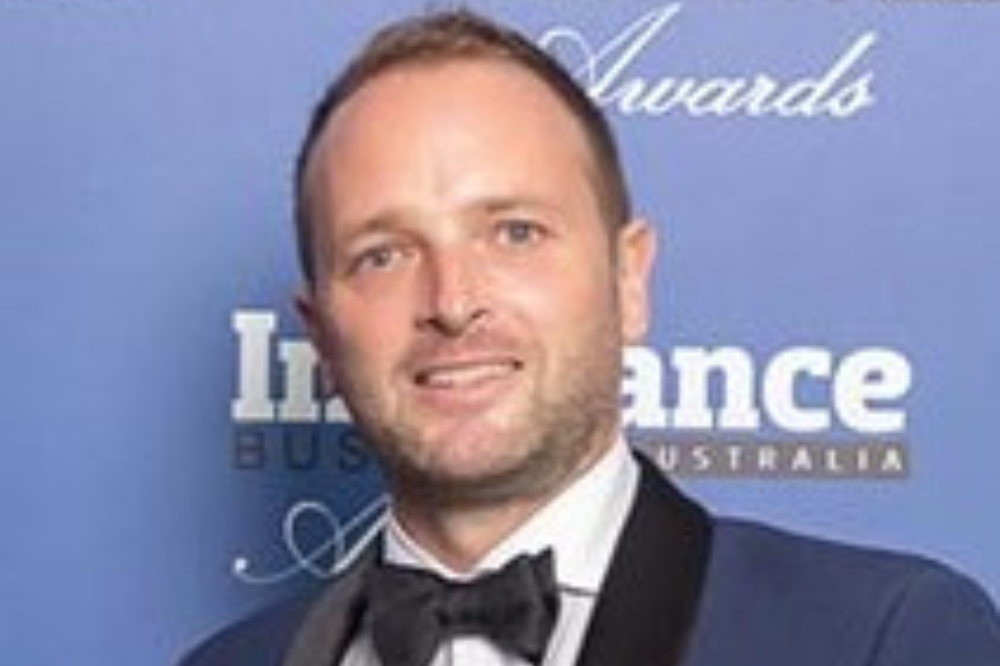How do you convince students to choose an insurance career?

The idea is to change the hearts and minds of graduates and school leavers and encourage them to choose the insurance industry for a career. The ultimate aim is to solve the industry’s shortage of talent.
“There are 72 students at the event and 12 companies – each company has six students on their table,” said Daniel Marsh (pictured above), Blake Oliver’s managing director.
The students, he said, are chosen from more than 1,000 applicants from universities and high schools. Marsh said his firm, which specialises in recruiting for the insurance industry, has spent a number of years building relationships with local universities, lecturers and some private high schools.
“So the idea is we’re raising the profile of the industry to these students and even for the ones who don’t make it, they are going to hear about what the event is all about,” he said.
The insurance industry’s image problem
The Australian insurance industry’s image problem is a familiar topic. However, Marsh’s personal work experience has given him a relatively unique perspective on this issue.
“I worked in the London market in the late 90s and if you’re English and you work in London, it’s quite prestigious to work in the insurance sector,” he said. “You’ve got Lloyd’s and the Square Mile and insurance and banking probably stand shoulder to shoulder.”
In Australia, he says, the insurance industry doesn’t have the same stature as other financial services.
“So students aren’t necessarily looking to leave school and work for some of our large insurers and brokers,” he said. “If we’re talking about education and the insurance sector needing to do more, it really needs to brand itself, that’s really what it comes back to.”
He hopes the student lunches, called Blake Oliver Connect, are a starting point to deal with this challenge.
The Melbourne event was a success
If the Melbourne event is anything to go by, the signs are good.
“Ninety per cent (90%) of students who attended that event were saying that they’d never really considered insurance as a career before but they are now interested in insurance as a potential career once they finish their degree,” said Marsh.
He said he’s aware of a few students who are now working for some of the insurance firms at the event.
“I spoke to one of the senior guys from Zurich,” said Marsh. “He said on LinkedIn that he’s made connections with some of the students who were there and he’s going to keep in touch with them over the next 12 to 18 months until they graduate.”
Global firms need to invest more in training
There’s the industry’s image problem but many professionals say there’s also a lack of training programs for those who want a career in insurance.
“There is a lack of grad programs in Australia,” said Marsh. He said the problem came into focus after big insurance firms started outsourcing their claims and administrative roles to cheaper locations overseas about 10 to 15 years ago. Traditionally, those were the entry level roles that acted like training programs.
“So those entry level roles dried up,” he said.
Marsh said some smaller brokerages have done their best to fill this talent gap and train their new staff. However, many are growing frustrated because they can find their newly trained up employees getting poached by the bigger international firms.
“There should be more student programs from the globals,” said Marsh. “They need to be investing more.”
His event with ANZIIF and Insurtech Australia may only involve 72 students but the idea is to give those students a high quality learning experience and access to top flight industry leaders.
“The students walk away from having sat next to, potentially, the CEO of a German insurer with $500 billion worth of premiums,” said Marsh.
He said students interested in the banking industry would likely never get this opportunity.
“The closest they’ve got to this event is a careers event where they walk around the room, get given a squeegee toy and walk out,” said Marsh.
His event has a deeper purpose, summarised on its website, where students and organisations can register for the lunch.
“Insurance is the best kept secret,” says a blurb. “It’s the ‘hidden gem’ of the financial services sector. Unfortunately, as a result, not many students know about where a career in insurance can take them.”
Marsh hopes his event helps uncover the gem.
How can the insurance industry solve its image problem? Please share your ideas below.





